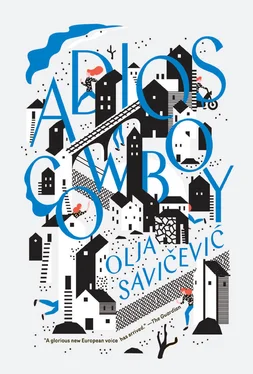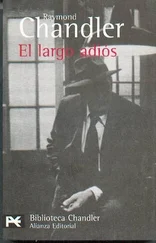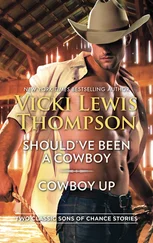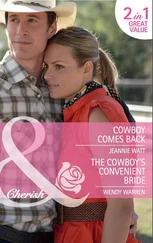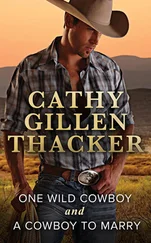So Ned and Tod, driving behind a tractor, can see through the washed windows of the truck an azure strip of sea and the chimney of the cement factory on the left and a poster in front of the pastoral center, with JESUS LOVES YOU on it on the right, and a traffic policeman watching out for drivers behind the discount store and two stray dogs passing beneath the newly washed larger-than-life General Gotovina, one behind the other, along the narrow dusty track beside the highway and turning off along the concrete stream bed near the new buildings for war veterans and there disappearing from view.
“Oh man, have you ever seen a dump like this?” says Tod, peeling the wrapping from a Snickers bar.
“I’ll tell you this, my friend, I’ve been in Europe and Africa and Australia, in Russia, both Americas, not to mention Austria and Hungary, Slovakia… I’ve been on the Slovene border and in Tirana. I’ve been in damn Santa Cruz on the island of Tenerife, in Rwanda and Niš, on the Ivory Coast, in Georgia and Colombia, but I have never ever seen such a shitty suburb as this,” says Ned.
“Aren’t you from somewhere around here on your mother’s side, man?” asks Tod.
“Oh yeah, maybe. But maybe not. You know, I’m more and more inclined to think not,” Ned smiles and swallows a swig of beer. “Anyway, Tod, aren’t you from Gilroy, the smelliest town in California, best known for its diabolical garlic ice cream?”
“That’s right, Ned,” Tod grimaces. “You’ll see, up there on the hill there’s a quarry, grass, and wilderness, better than Almeria for filming. The colors are sharper, everything’s more intense. And let’s not ignore this item, Ned — it’s fucking cheaper.”
Between the asphalt on one side and the brambles, groundsel, and unplastered houses on the other side of an imagined pavement, the wind raises dust, blows dry uprooted shrubs and trash about. Here — behind yet another gas station and a few inns where suckling pigs turn nonstop on a spit — Ned’s pickup, following a road sign, turns off toward a local cemetery, and then, if they’re thinking of reaching their destination, they ought to continue across the railway line along tarmac through the olive groves in the prairie.
Let’s wish them a safe journey, because we leave the road here and climb up a goat track for a hundred meters or so up onto a hill. In front of us is a former slaughterhouse, behind the slaughterhouse is a copse, and in it a field chapel. From this spot, there is a magnificent view of the channel, the sea, and the Old Settlement, but also of the nearby quarry that has served as a garbage dump for years.
Just where the quarry ends is where there begin to rise up what are ugly buildings even for this part of the world: this is Majurina, the country estate, the ranch, tenure, smallholding of the old railway-track tribe — the relatives of the Iroquois Brothers.
* * *
The woman kicking the rotten gate in the fence and breaking into the scene is Maria.
Fortunately, her pa is behind the house, sheltered from the wind, feeling blue heads of cabbages with his black hands and choosing a large one for lunch.
Had he seen the way his daughter came in, the old man would have knocked her to the ground, silently, with a single blow to her back or belly. Then she would have grabbed him — as she had done before now — by his bony calf and bitten into it, dragging him down, lower, toward herself, scratching his face with her nails and whispering: “I’ll do you in, Pa,” and then — because this is what he did for lesser offenses — her father would throw a stone at her, or bash her with a tin bowl or spade, whatever was on hand. He would hitch up his trousers and spit beside the snake. He’d leave her on the ground, writhing, and say: “You got what was coming to you.”
Had it been like that, and fortunately it wasn’t, Tomi’s triplets would have climbed onto the bare branches of the almond tree on the other side of the wire fence, three leggy girls with snotty noses, and, treating themselves to bread and Nutella or meat paste, they would have watched the contest as though it was a game of chess.
When she was thirteen, Maria Čarija had tried to batter her father with a hoe, it was a famous incident in the Old Settlement after which her pa shoved her into a cement mixer. Tomi had pulled her out alive and as enraged as a pagan she-devil.
Tomi Iroquois had warned his uncle not to touch his cousin, so people in the Settlement said.
People also said that mad Maria and her old man ate together, but that from that day on they both slept with knives under their pillows.
Unfortunately, we don’t have time to peer into their pigsties and check what’s hidden under their pillows, because time is flying, not standing still, and more important things are happening outside.
And nor do we have any reason not to believe Tomi Iroquois when he says that Maria doesn’t need a cold weapon — she’s too good a shot to dirty her hands.
So, while Maria’s irascible and tousled pa is stepping between the beds of kale and endives, she kicks down the gate in the fence, enters the garden and then the house, where she finds a key with which, hurriedly, before the old codger appears, she opens the cellar door and vanishes into the darkness.
After a while, she appears in the cellar doorway, turns the key in the padlock and emerges into the light: merciless as the sun, sharp as the wind, but silent as the prairie and armed to the teeth.
She speeds, fierce and frowning, through the undergrowth, rushing through the impenetrable broom bushes, slipping down to the railway track where she cuts across the path of a pickup and some baldie with a cigar yells at her in English.
She stares at him dumbfounded. Perhaps she’s never seen anyone like him before.
As they pass, he shows her his middle finger.
Without hesitating, Maria takes out her daddy’s pistol and aims at the passenger’s rear-view mirror. BANG! BANG!
The other one, the driver, leaps off his seat.
“Holy shit, Tod!” He mutters between his teeth and puts his foot hard down. Stones scatter under the tires into the air.
The girl spits and lowers her weapon, then takes off downhill.
The day is waning and the storm subsiding. Now the light is already softer and the plants are turning their stalks toward the west, while a swift, invisible animal bends the burned grass.
Hey, Maria Čarija, where have you set off to with that rifle, crazy lady from the railway track, you who aim at a bird’s eye in flight?
What did Maria find in the cellar?
In the potato store, the Iroquois’ old hiding place, she found: a Glock, a Beretta 92F, an Uzi and two hunting rifles, a Kalashnikov, three Thompsons and a hand grenade; the average arsenal of a railway-track house.
She selected a Winchester with a nice wooden butt, her pa’s favorite — because it’s elegant, because it’s reliable, because it cocks easily and lies best in her hand. She stuffed cartridges and smoke bombs into her pockets.
Legend has it that someone in China dropped saltpeter into a fire and the flame began to spatter like a pyrotechnic fountain. And then Marco Polo brought that toy to the Old Continent. That’s what Daniel, Rusty’s late brother, told the Iroquois, but, nonetheless, who would have believed him, apart from Maria, when no one they knew had been able to make a firework out of saltpeter, just gunpowder for homemade bombs and smoke.
When he was alive, Maria’s relations had called Daniel “Cornboy,” because his hair was neither black nor blond nor brown nor gray, but she had followed him, secretly, she couldn’t stop pursuing him, there was nothing to be done — he was like a magnet.
One long-legged one with a thin mustache who looks like Lee Van Cleef and the other with the expression of a truly upright fellow and ulcer patient like that of Gary Cooper have planted themselves, legs apart, in the middle of the prairie. They survey the scene in all directions in a macho way, then, like two bulls, they fly at one another and grab each other in a firm hold.
Читать дальше
